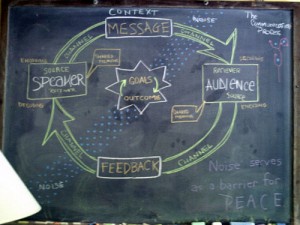Feedback Loop: Bill Gates And Florida’s Teacher Evaluations
Last week’s story on Florida’s teacher evaluation formula drew some thoughtful responses, including a deeper at the issues look over on the Shanker Blog.
Many of the comments here expressed disbelief that Florida’s formula could measure what was promised.
Floridagadfly says teaching can not be boiled down to a statistical model because students are not static, unchanging factors:
This is not a math problem. This is a faulty assumption problem. The assumption is that the man behind the curtain can actually know the ten factors that affect FCAT scores, that those factors are the same from student to student and year to year, and that those factors can be accurately determined for each public school student. Life just aint that simple.
How many weeks between collection of the ten factors and the taking of the test? Does nothing change for any student during this time? The architects of this equation deserve an “F” grade. Shoddy logic and excessive hubris.
JP Finan wrote the state needs a way to measure teacher performance, but questions whether the FCAT and this formula are the best method:
I really want to embrace formulas like this. I hate the idea that 5% of teachers can muddle along doing a crap job for kids. I don’t have any trouble understanding the formula – sure, it’s convoluted, but it’s not rocket science. I’m a big believer in at least trying to reward good performance, too. I really do not care about hurting the feelings of a bad teacher, regardless of how many years they’ve been bad at teaching. I don’t worry much about year to year random differences as long as students are randomly assigned. Yes, sometimes you get a bad crop but other times the opposite is true. That said, there really seem to be a lot of problems to work out – poverty matters, for one, and testing instruments seem like they may need a lot of work
Readers also weighed in on Bill Gates’ New York Times op-ed arguing teacher evaluations should not be used for public shaming. Florida lawmakers are working on a bill to ensure parents could access those evaluations after one year.
MarkInKansas argues Microsoft is a different enterprise than the neighborhood school. Teachers are public servants, and therefore should be subject to the scrutiny.
Importantly, Mr. Gates’ comparison of MS’s confidential employee evaluations to public education’s previously (and still mostly) concealed-from-the-public teachers’ evaluations–which Mr. Gates tells us has been completely inadequate – is arguably wrong because public school teachers work in a taxpayer-funded public enterprise. Those who have chosen to work in taxpayer-funded public schools, have not been forced to choose this vocation. They voluntarily have done so, and they should be given incentives to leave, if they aren’t good at this job, instead of being retained, in the face of doing a “crappy” job.
Kacorm argues publicizing evaluations does nothing to encourage candidates to teach.
If all educator know that all educators evaluations are going to be made public – who is going to throw the first stone…..
This approach should not be administrated because it is unnecessarily invasive to a credentialed individual and it will not meet the objective set.
Teaching is an art… and yet powers that be keep trying to make it a formula.
Reader reaction is an important part of building StateImpact Florida’s education coverage. Feedback Loop will be a regular feature highlighting your questions, criticisms and comments.


